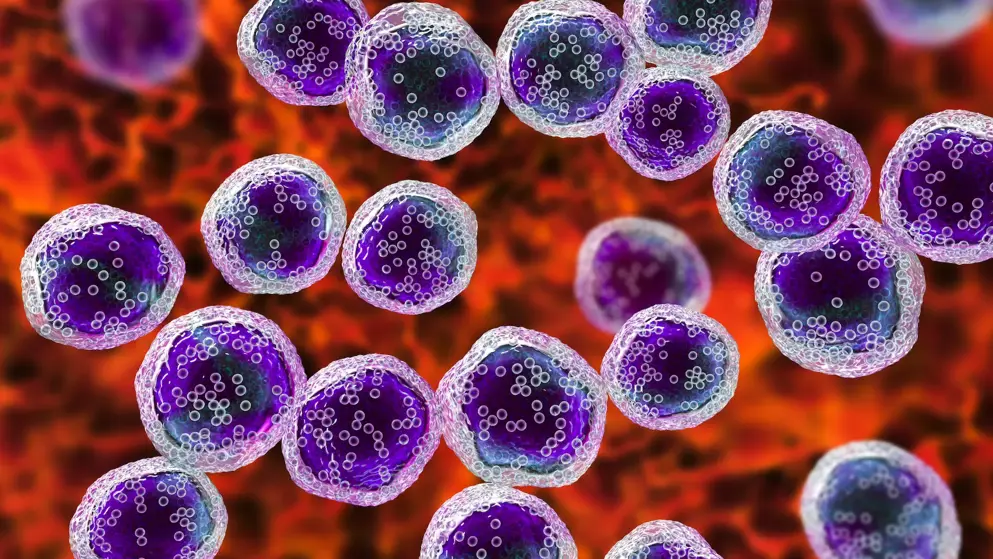
FDA approves Epkinly for diffuse large B-cell lymphoma.- Genmab/AbbVie
Genmab/AbbVie announced that the FDA has approved Epkinly (epcoritamab-bysp) as the first and only T-cell engaging bispecific antibody for the treatment of adult patients with relapsed or refractory (R/R) diffuse large B-cell lymphoma (DLBCL), not otherwise specified (NOS), including DLBCL arising from indolent lymphoma, and high-grade B?cell lymphoma, after two or more lines of systemic therapy.
Epkinly was approved under accelerated approval based on response rate and durability of response. Continued approval for this indication is contingent upon verification and description of clinical benefit in a confirmatory trial(s).
In the pivotal Phase II clinical study, subcutaneous Epkinly monotherapy demonstrated responses in challenging-to-treat, relapsed or refractory DLBCL patients who have received at least two prior treatments. An overall response (complete or partial response) was seen in 61 percent (90/148 [95 percent confidence interval (CI): 52.5-68.7]) of patients and 38 percent (56/148 [95 percent CI: 30.0-46.2]) achieved complete remission. The median duration of response was 15.6 months (95 percent CI: 9.7-Not reached). Epkinly can cause serious side effects, including cytokine release syndrome (CRS), immune effector cell-associated neurotoxicity syndrome (ICANS), infections, and cytopenias.
In the expansion cohort of the trial, 157 patients with large B-cell lymphoma (LBCL) were enrolled. Among them, 148 patients with DLBCL or high-grade B-cell lymphoma were enrolled, 89 percent of which were diagnosed with DLBCL NOS, including 28 percent with DLBCL transformed from indolent lymphoma, and 14 percent with high-grade B-cell lymphoma (HGBCL). The median number of prior therapies was three (range: 2 to 11), with 29 percent receiving two prior therapies, 32 percent receiving three prior therapies, and 39 percent receiving four or more prior therapies. Eighteen percent had prior autologous hematopoietic stem cell transplantation (HSCT), and 39 percent had prior chimeric antigen receptor (CAR) T-cell therapy. Eighty-two percent of patients had disease refractory to last therapy and 29 percent of patients were refractory to CAR T-cell therapy.

